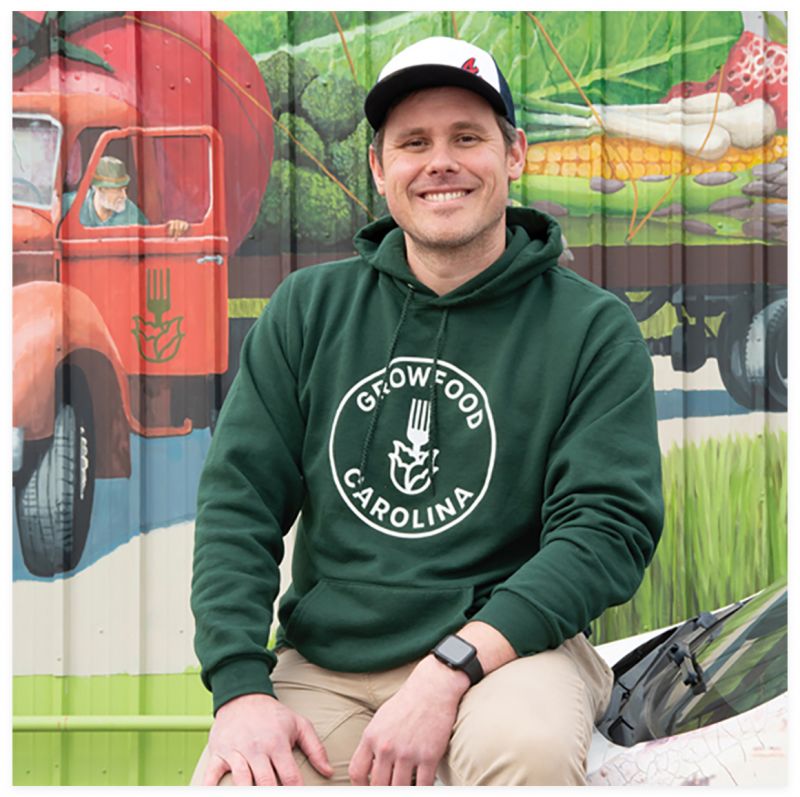Montgomery oversees a network of programs that help support Lowcountry farmers and put fresh, healthy food into the hands of consumers

CM: What brought you to Charleston?
BM: I moved here in 2007 for an internship with a group called All In Entertainment that did the booking for the Music Farm. After a couple years, I wanted more of a day job, and I saw a City Paper article about a new food hub from the Coastal Conservation League. I was excited for a program that has such a positive impact on the state and let them know I was interested in being part of it.
CM: Since then you’ve gone from one of GrowFood Carolina’s first employees to its director.
BM: When I started in 2011, there were only three of us. I was a part-time driver, and later went full time helping with both sales and operations. I really enjoyed meeting the farmers, learning the schedule of when things came in. We moved from our original headquarters on Morrison Drive in December 2022. It doubled our refrigeration capacity; our entire old warehouse could fit into the coolers in the new digs at Harmon Street. Anthony Mirisciotta left last July after nearly four and a half years, and in October, I was named the new director. So far, it’s been a big challenge but a lot of fun. I care a lot about the different parties involved, from coworkers to growers and chefs.
CM: How has GrowFood evolved in your 13 years?
BM: We started off with restaurants as our main priority, and it’s still the vast majority of what we do. When the pandemic hit, we pivoted to direct-to-consumer and food access initiatives and have kept it as a focus moving forward. Consumers can purchase boxes of produce sourced from area farms or donate a box via our Soil to Sustenance Program. We have several different partners that receive food donations through that, as well as through full cases of produce, which be distributed as needed. We restarted our produce box program in January with more options and found immediate success.
CM: What kind of other community initiatives to you oversee as director?
BM: We partner with the MUSC Boeing Center for Children’s Wellness to send local schools fresh produce and follow up with nutritional facts and a Q&A. So far this year, I’ve visited six schools in Williamsburg County teaching the history of Pink Lady apples. Beyond the educational aspect, this can help children develop healthy habits. And their questions are always so fun. Additionally, we work with the Charleston County School District’s Head Start program, which supplies produce to around 700 students’ families each semester depending on enrollment. For these, we can buy a lot of really nutritionally dense products that families can stretch, such as cabbage, sweet potatoes, and collards, that we don’t sell a ton of to restaurants.
CM: What’s on the plate for the future?
BM: I’m always talking about how we can do more locally because I want to make sure our backyard is really covered. Recently, we had someone bring one of our boxes to their neighbor in Mount Pleasant and saw she had five grapefruit trees producing more fruit than she could eat. We got in touch, and now, she’s brought in hundreds of pounds of fruit. We’re going to start making a second delivery to Savannah this month given the success we’ve had there, and are really excited to be in strawberry and asparagus season.